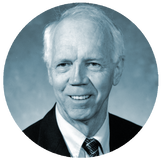|
Thinking about the much hoped-for end to our quarantined existence that protects us against the COVID 19 VIRUS reminds me of the liberating message carried by that famous World War II song, “When the Lights Go On Again, All Over the World.” Sung by the young English singer, Vera Lynn, it became immensely popular. Vaughn Monroe popularized it in the U.S., vaulting it to the #1 spot in the 1942 Hit Parade ranking. I first heard “When the Lights Go on Again” sung by my sixth grade room’s best singer, Joan Sweetman, during one of our 1940 spring semester Friday afternoon talent shows at Jefferson Elementary School in Racine WI. Every week half of our 25 student class had to do a presentation or performance for the benefit of our classmates.
For some students this was easy. Joan Sweetman had no difficulty getting up and singing, Ruth Radawan loved to demonstrate her tap dancing skills attired in her skimpy little tap dancing dress. Alex Spiroff enjoyed playing his favorite song, “Alexander’s Ragtime Band,” on his accordian. The always beautiful Betty Brown played for us the music she learned at her most recent weekly piano lesson.
Those of us with no or lesser talent faced difficulty deciding what to do. Herb Marks always found something he could say about new weapons of war, such as flamethrowers or anti-tank mines. John Eifert regularly talked about some famous baseball player. I was regularly saved by a book called CURIOUS FACTS that contained dozens of interesting factoids I could read to my amazed classmates. They were especially impressed with the long sentences I found in which the first letter of every word began with the letter “W.” Here is one such item: “Warm weather Walter. Welcome warm weather. We were wishing warm weather weren’t we? We were well wearied with waiting, whispered Walter wearily.” And so the “W” words continued onward. Tough to duplicate; try doing so!. Though the times were bad, they were good for school kids like us. Ms. Strand regularly challenged us to keep abreast of world affairs, the rise of Hitler and Mussolini, the fall of France and the Low countries in spring 1940, the two 1939 World Fairs going on in New York and San Francisco, a classmate’s account of an auto trip to the New York Fair on the newly opened Pennsylvania Turnpike, and so on. On two large tables we had constructed three-dimensional mockups of the World Fair buildings, including the Pylon and Perisphere. Meanwhile, the scope of World War II expanded and the blackout imposed on London extended its reach to the large cities on our East Coast. Throughout the war years, the sentiments expressed in the song “When the Lights Go On Again . . ” helped carry us through to victory. Will there be similar song to help carry us through our current pandemic? Let’s hope so. Names of 6th grade classmates at Jefferson Elementary School; Teacher: Ms. Strang Joan Sweetman Ruth Radewan Alex Spiroff Herb Marks Betty Brown, Jack Ifert Lorraine Graham, Beverly Schleds, Joan Hurst, Roberts Glidden Bill Johnson, Eddie Poplowski June Rogers Joan McCullough Mary Jane Stemple Dick Hayes Eugene Rexilius Bill Graves Jack Hansen Dick Warner Ralph Henkes Marily Heilbering Marilyn Glade Lillisn Hanson Jackie Harmes Roberta Hurley Dick Ganzel Ralph Nuebauer Dick Bassingdale Stephen Cole Frank Ittner Lee Hansen 31 total, six rows of sears, five seats per row = 30 Comments are closed.
|
About the AuthorAt age 92 I decided to showcase my recent and current writings on a variety of topics outside of my career interests as an economist. My wife Sally’s dementia, my experiences of war, and my interests in improving higher education all compel me to write.
For most of the last decade I maintained a low profile, necessitated by my wife Sally's suffering from a decade-long siege of vascular dementia. After she passed away several years ago I wrote about our experience, in the belief that this would be helpful to the many others who suffer from dementia and their family caregivers. I am currently seeking a publisher for my book manuscript: The Forgotten: Dementia and the Right to Die. Over the past few years I began working on several other writing projects that are described more fully elsewhere in my blog. These include a nearly-completed book manuscript on my "expected proficiencies approach to the college major'' as a vehicle for reinvigorating liberal education. I continue to write on the shortcomings of UW-Madison's affirmative action policies and programs that over the years have been renamed "diversity and inclusion" policies and programs. Within two weeks of my graduation from UW-Madison in June 1950, the Korean War broke out. I was drafted and expected to be sent to Korea to join our fighting forces there. But instead I was sent to Turkey for 18 months. How lucky I was. I am also writing a memoir of my Korean War military experience when I served as an U.S. Army adviser in our military aid program in Turkey. Until I began branching out beyond economics, I failed to realize what a profound effect the Great Depression and World War II had on me as I grew up. I have already captured some of these recollections, with more of them to follow. With that introduction, I turn you over to my blog entries as well as my other writing projects described more fully elsewhere in my blog. Best wishes ~ W. Lee Hansen Dear Friends: I want you to have an opportunity to sign up to receive my periodic postings. Instructions for doing so will be coming soon.
Award-winning author W. Lee Hansen, Ph.D. is Professor Emeritus of Economics at the University of Wisconsin-Madison. Full bio.
Categories
All
Archives
November 2023
|

 RSS Feed
RSS Feed